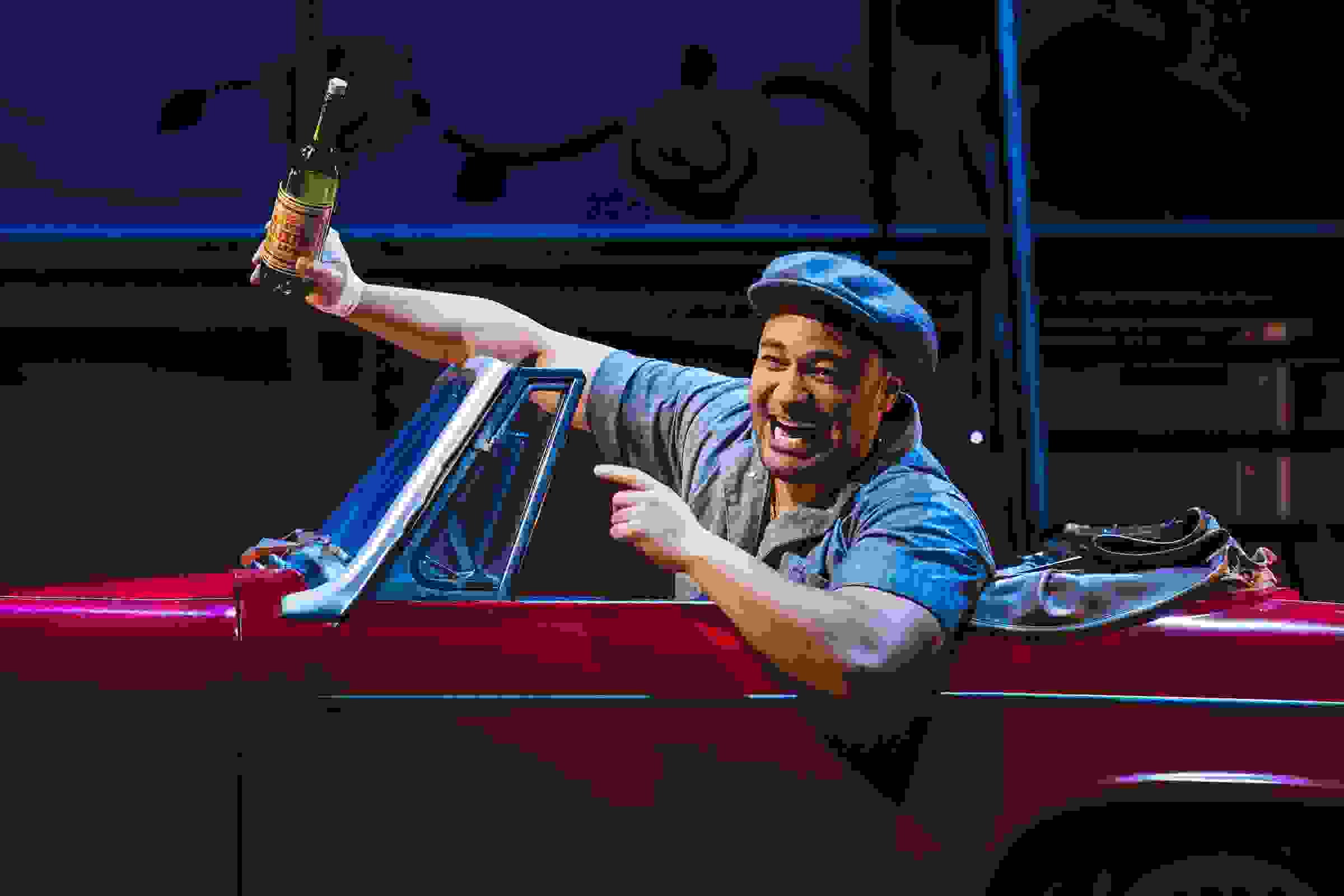Finding the Funny
Mark Campbell is a funny guy. One of the busiest librettists in the business, he has provided text for more than 40 operas, at least seven of which he describes as “comedies.”
He’s also known for finding the humor in the most serious of subjects. Campbell has woven witty one-liners into everything from horror stories (The Shining) to tales of war (Silent Night) to social commentary (As One).
For him, the amusing bits are an organic part of every story, and he doesn’t understand why so many of the operas being written today steer clear of the comedy label.
“We don’t take comedy seriously,” he says, referring to the dearth of humor in contemporary opera. “Comedy makes a story more approachable, so why wouldn’t you want to program approachable stories instead of stories that alienate your audiences?”
To be sure, comedy has long been a significant part of operatic tradition, and chucklesome titles like The Barber of Seville and Der Rosenkavalier are still standard features in opera seasons. But the rush of new commissions that have come to define the field over the past two decades is less in the lighthearted tradition of The Elixir of Love and more on the dark edges of The Exterminating Angel.
The question is “why?,” of course, especially in an age when comedy drives so much of this country’s culture. Delivering guffaws is the bread and butter of television, movies, and even Broadway, where it can be difficult to find a dramatic play that resonates widely.
Why are new opera comedies the rare exception? Or are they simply overlooked?
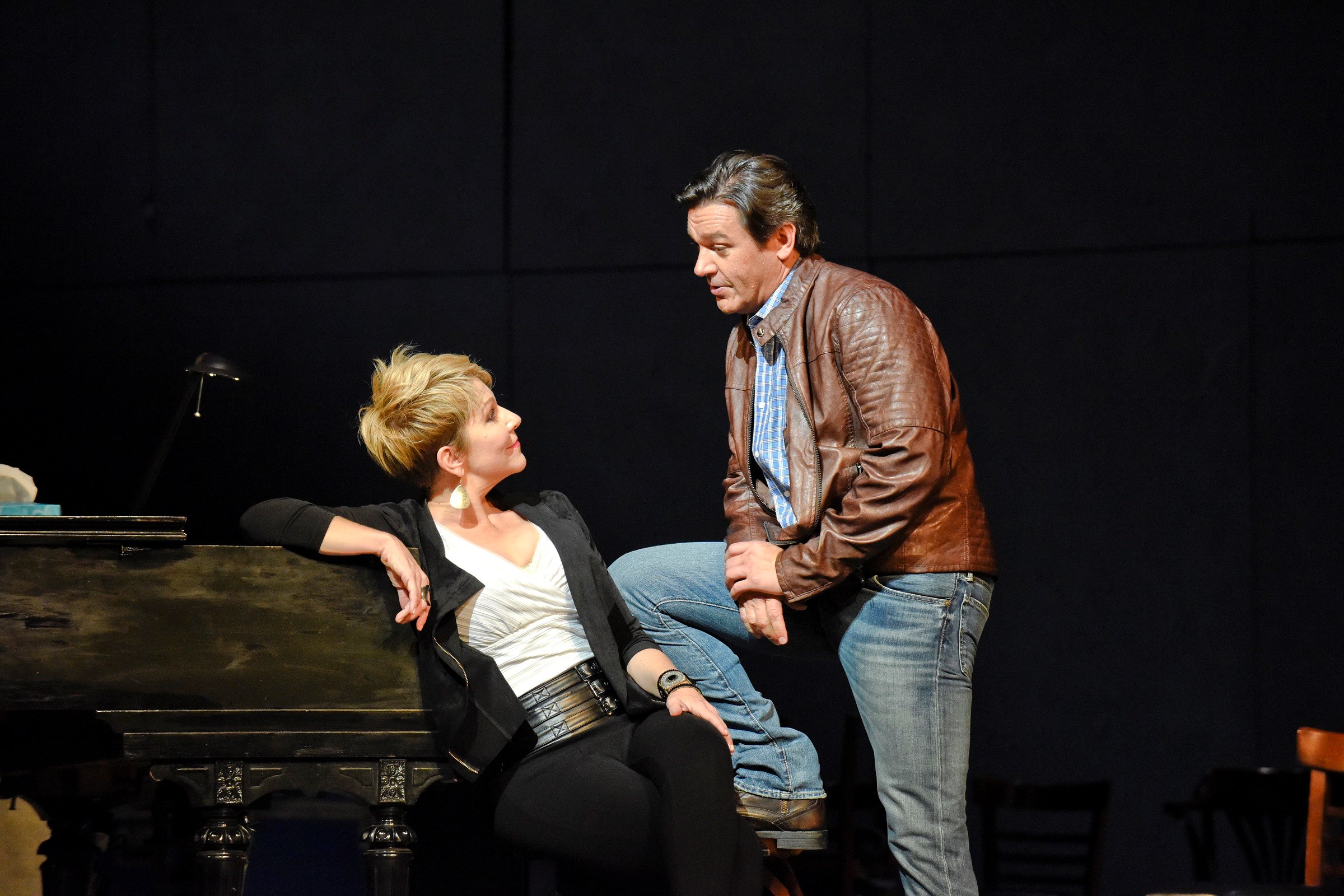
Finding the Funny
Take Great Scott, the football-themed comedy that Dead Man Walking team Jake Heggie and Terrence McNally wrote for The Dallas Opera in 2015. Even a star-studded cast of Joyce DiDonato, Ailyn Pérez, Frederica von Stade, and Anthony Roth Costanzo couldn’t give it enough juice to enter the 21st-century canon, and the opera only received one a single additional staging at San Diego Opera in 2016.
Heggie argues that comedy has always been a supporting player in opera, even more so for the last several decades. “In the entire history — 400-plus years — of Western opera, how many comedies actually work and endure? How many do we revisit out of the thousands and thousands of operas composed?” Heggie asks.
He answers: “A handful.”
For him, the reason is clear: “Because nothing is more difficult in opera than comedy. Opera lends itself readily to big dramas, but comedy is a different thing altogether.”
Comedic works require timing, wit, physical hijinks, lively staging, and a composer who knows how to set laughs to music. More than that, it demands that the people who produce it let their hair down, and that is not something the opera community — companies, funders, and audiences — is known for doing.
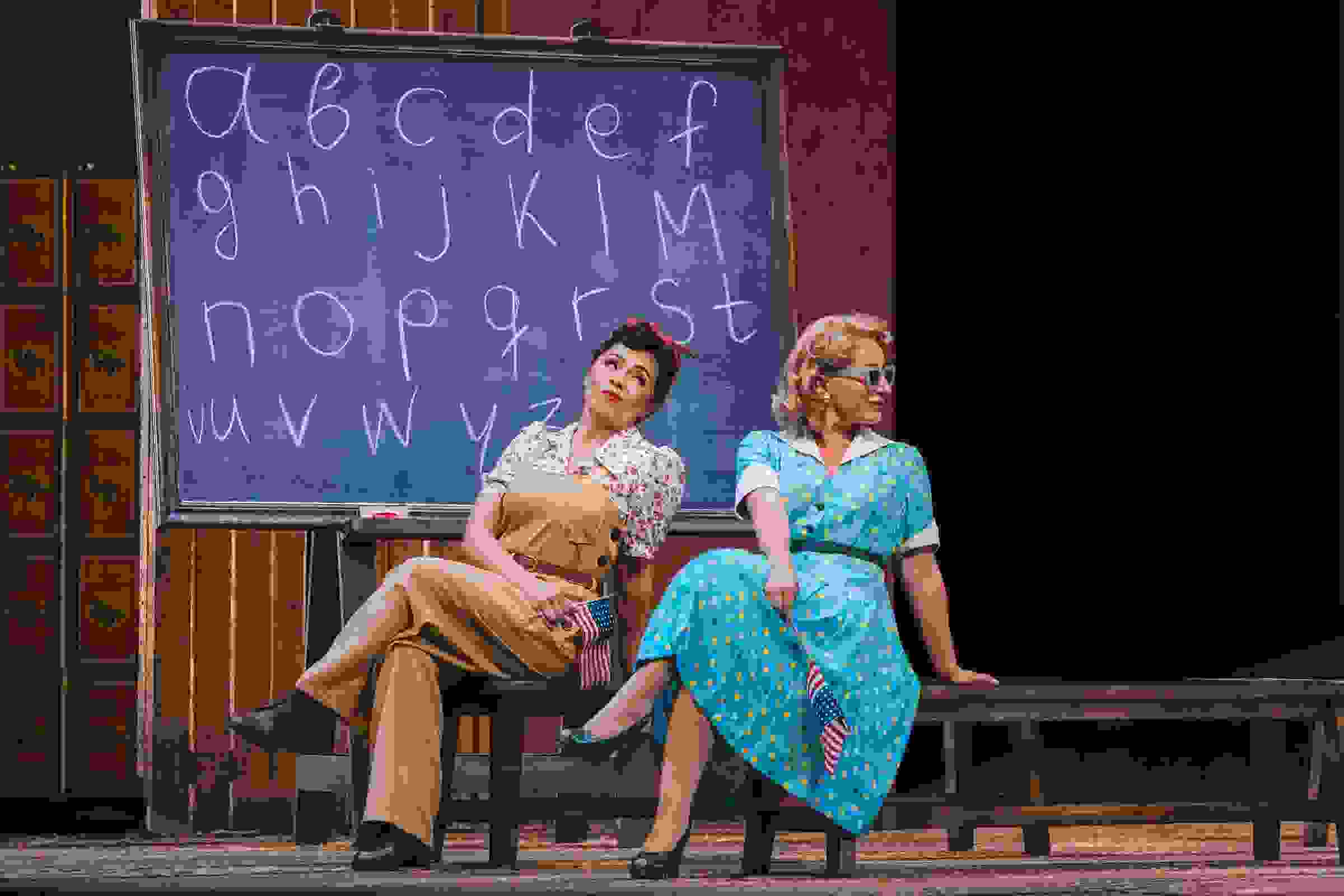

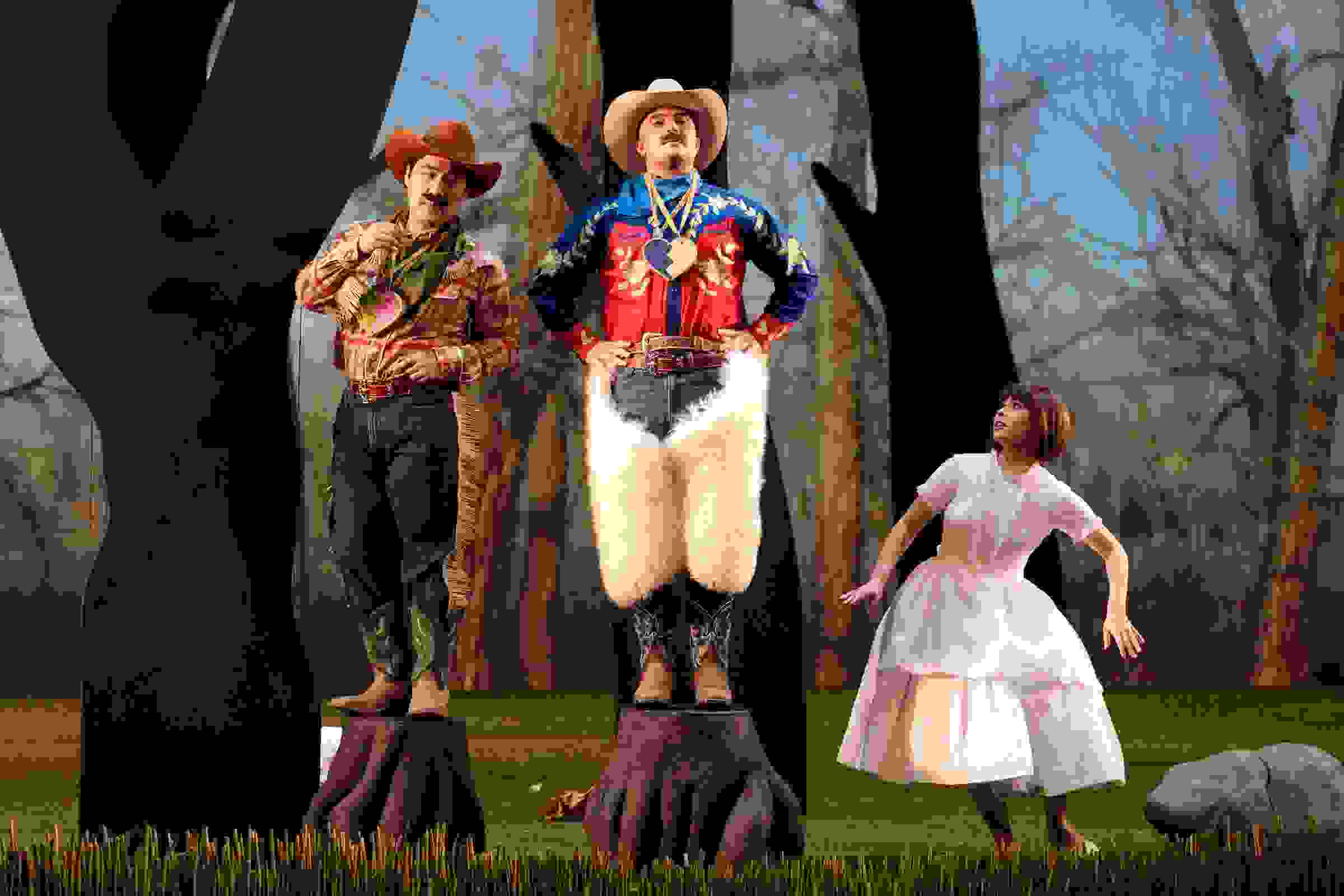
Seriously Niche
“For some reason, it is kind of hard getting away from the thought that opera is only about drama and people dying on stage,” says composer Johanny Navarro, who used a 2020 OPERA America Grant for Women Composers to help fund her comedic ¿Y los pasteles? — And the Cake?, in English — premiered in July by Teatro de la Ópera in San Juan, Puerto Rico.
Indeed, there seems to be a consensus that opera simply takes itself more seriously than the commissioning of more comedies would permit. It’s possible to brush that attitude off as fine-art snobbery, but really it’s more complicated than that — it has a lot to do with how opera sees itself fitting into the wider cultural conversation in the 21st century. Opera’s early history might have placed it in the mainstream of entertainment, but as pop culture offerings like television, film, and more contemporary music came to dominate popular tastes, opera evolved into more of a specialized form. Now, it fills a niche for “serious art” that has left less room for its whimsical side.
“I think the trend in much of opera is to look down on comedy as a remnant of the form’s populist past,” Campbell says. “If a work is engaging or fully entertaining, it can’t be good.”
That’s not all bad, Campbell and others say, because that weighty self-image has also sparked some important works. If opera’s posturing is so serious, then perhaps that can be credited for pushing composers to dive into more contemporary topics as companies large and small continue to make the creation of new pieces central to their missions.
“Opera is in a transitional stage right now in that we are bringing stories to the stage that have not been told before,” says composer Damien Geter. “A lot of those are in the realm of social justice, and a lot of those stories are steeped in tragedy.”
Geter applauds serious works, though he does worry that an overabundance of these titles can give minority communities something of a stigma. If the form is finally getting around to telling the stories of people of color, but zeroing in solely on inequity and social trauma, that threatens to position whole categories of human beings as tragic figures. “There’s so much more to Black folks than that,” he says.
That’s where comedy comes in. Telling stories about contemporary issues and ideas through both tears and laughter presents a more relatable and complete picture of the human condition.
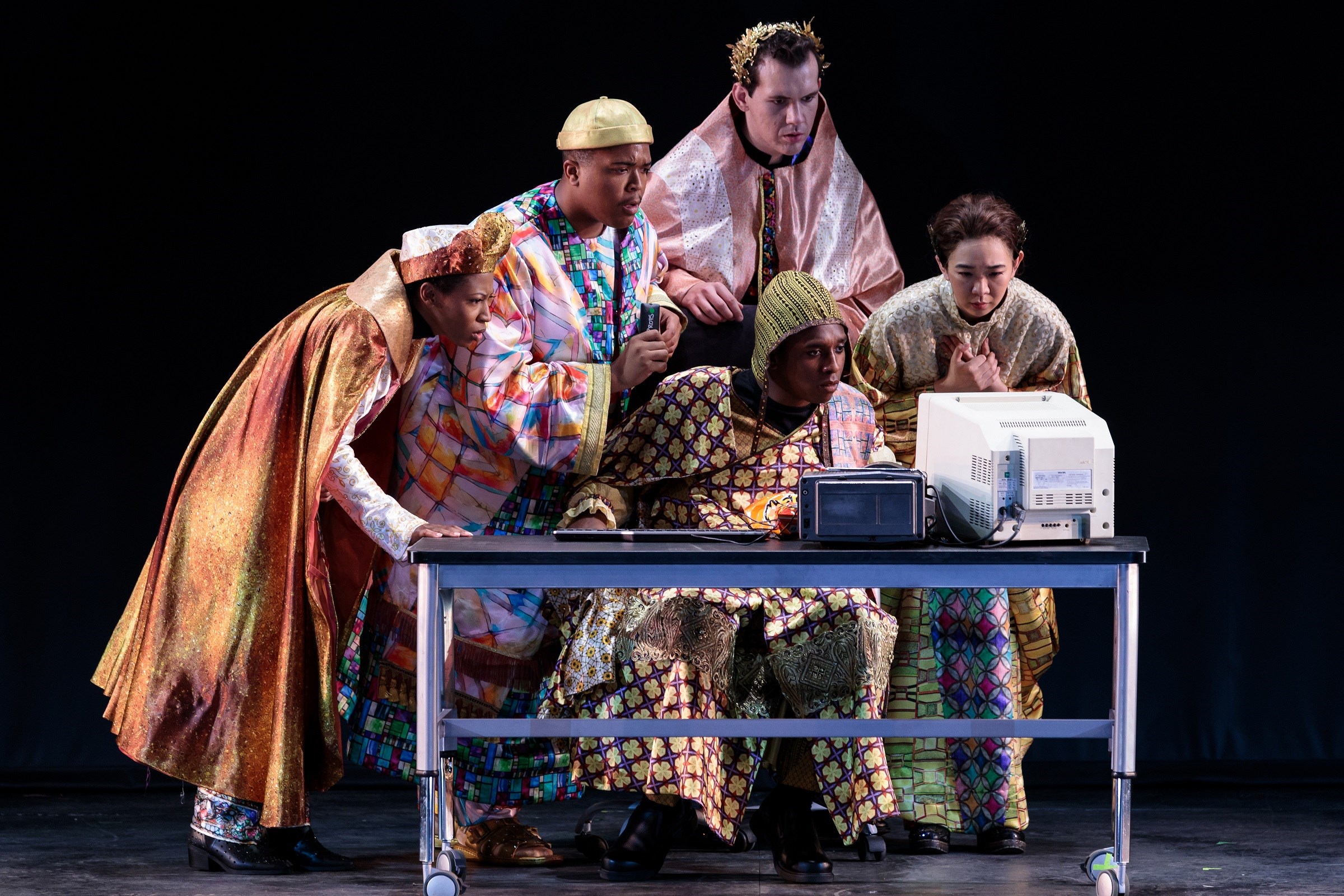
What's Funny?
Geter and librettist Lila Palmer combine serious and humorous elements in the opera Holy Ground, which premiered at The Glimmerglass Festival this summer. The piece revisits the biblical story of Mary carrying the Christ child, framing it through the lens of feminism and reproductive choice. But they added a chorus of angels for critical comic relief. Geter describes the laughs in Holy Ground as broad and slapstick, the kind of humor that gets its inspiration from everything from the broad physical comedy audiences might see in a production of Don Giovanni to the zany antics of The Three Stooges.
But figuring out just what kind of humor resonates in the current age can be difficult. Audiences tend to forgive historic operas for their social faux pas, chalking up small offenses to the customs of an earlier age. But would new “humorous” stories driven by opera mainstays like cheating, stealing, the abuse of domestic workers, or sexism even be greenlit by producers today? That reality has left composers and librettists searching for a new formula.
It’s not that comedy is so dangerous now — though social debates do rage over what is funny and what is simply rude — but more that tastes are all over the map. “Opera is supposed to be universal,” says composer David T. Little. “An older audience is not going to find the same thing funny as the younger audiences companies want to bring in.”
Little points out another habit of opera-making that can hinder comedy: the years-long process of workshopping, rewriting, honing, and tightening that can water down humorous moments. Vinkensport, or The Finch Opera, the comic one-act he created with librettist Royce Vavrek about the zany Belgian bird-singing competition, is considered by many to be one of the funniest new operas out there. Little credits its success to the fact that he and Vavrek basically wrote it on their own, collaborating in seclusion and avoiding the pitfalls of opera made by committee. “There was no workshop,” he recalls. “No one saying something wasn’t funny, or that it might offend someone else. It was just us being funny to ourselves.”
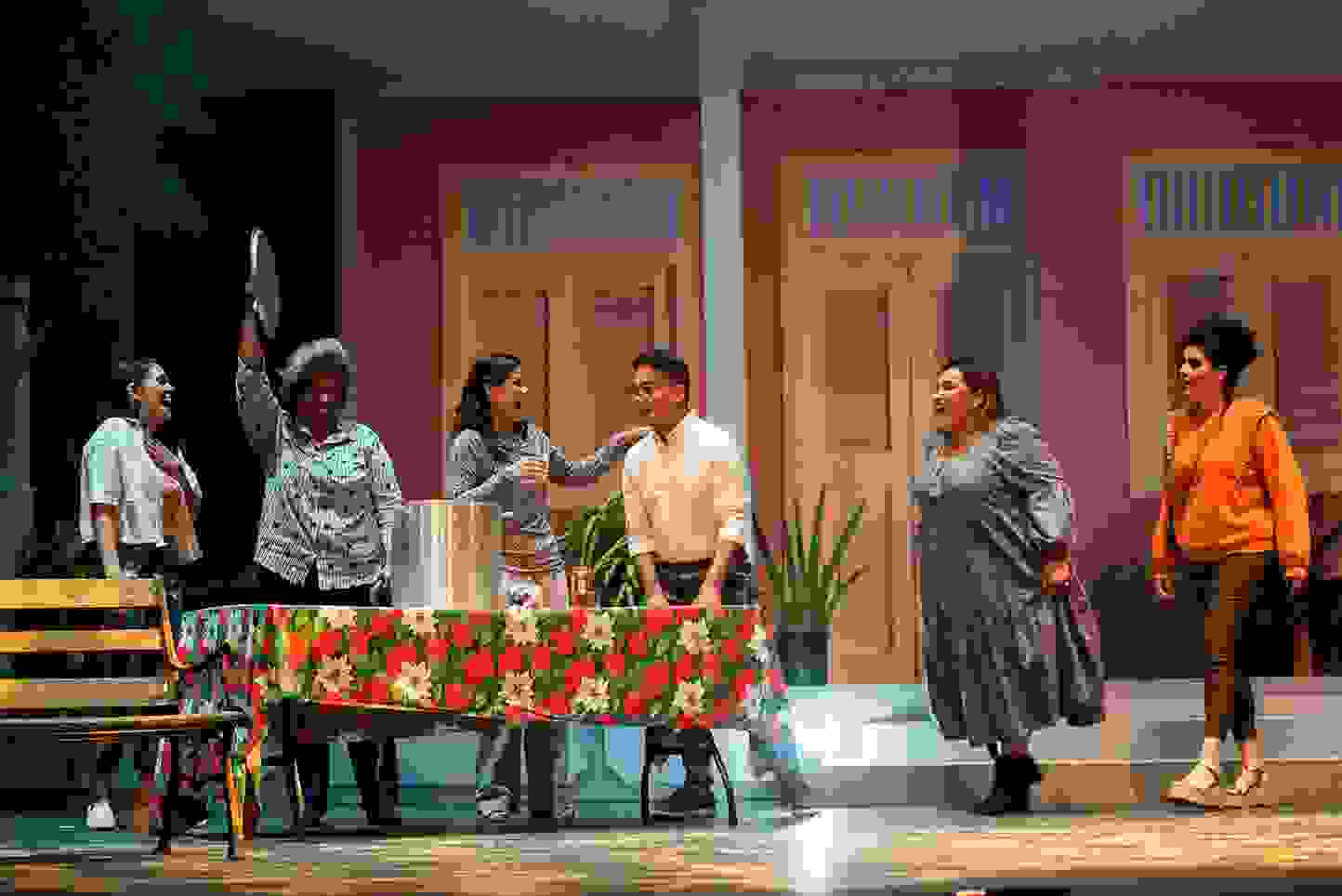
Belly Laughs
For ¿Y los pasteles? Navarro hooked her humor to an indisputably universal theme: food. The work centers on a Christmas party where joyous traditions are upended by the absence of dessert, a central element of the festivities. The opera wraps that in a story about family dynamics that is loaded with twists and turns until “there’s a big finale with a happy ending where they get their pastel and we have this amazing party,” she says.
But making a piece where all the bits land was a challenge, she adds, and difficult to pull off in such a complicated art form. “You have to have the joke in the text. You have to have the joke in the music. Then the actors have to have the joke in the moment.”
Notably, the use of supertitles constantly interferes with the timing of key theatrical moments. Supertitles can be necessary for understanding the text, but they can also be joke killers.
“I’ve had many performers tell me how much they hate that the audience is laughing before the performer delivers the punchline,” says Ben Krywosz, artistic director of Nautilus Music-Theater, the Minnesota-based nonprofit dedicated to the development of new operas and other forms of musical theater.
And as to whether opera companies should be making more comedies — “That’s a question for opera companies to address in their missions,” Krywosz says. “What are they trying to do for the community? A lot of operas are technically interesting and certainly intriguing, but there’s very little sensual enjoyment in them. Being entertaining is not the opposite of being artistic.”
This article was published in the Fall 2022 issue of Opera America Magazine.
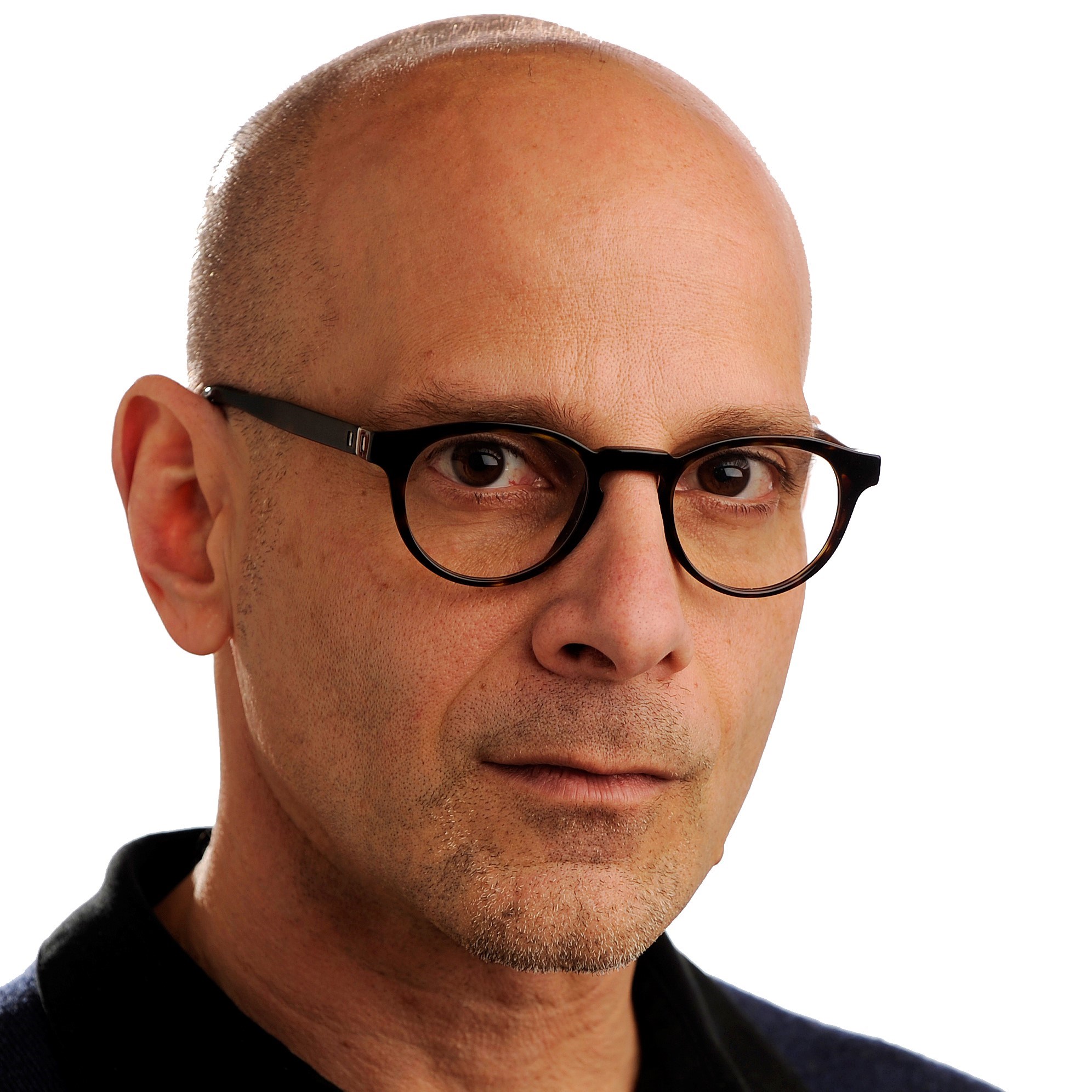
Ray Mark Rinaldi
Ray Mark Rinaldi is a veteran arts writer and critic whose writing has appeared in Opera News, Chamber Music, Inside Arts, and the Denver Post.






